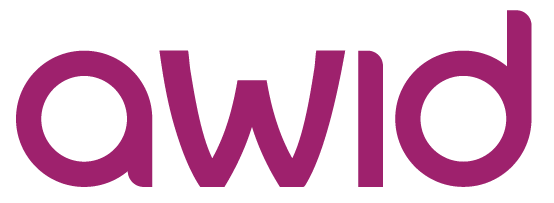The Journey to Create an Accessible AWID Forum
Intentionality and learning guided the journey of accessibility at the 15th AWID International Forum. AWID established the Accessibility Committee in August 2023 during the Forum Planning process. We brought together eight activists representing diverse movements focused on a range of issues including disability justice, harm reduction, living with HIV, and trans rights, along with four AWID staff.
Asia-Pacific Women with Disability (APWWD), CBM Global Disability Inclusion (Nigeria), DRISTI (Nepal), International Community of People who use Drugs (INPUD), Suar Perempuan Lingkar Napza Nusantara Foundation (SPINN) (Indonesia), MADRE, Women Enabled International (WEI), International Community of Women Living with HIV - Asia Pacific (ICWAP), and Qorras (Lebanon).
The goal of the Committee was to make the Forum more accessible for everyone, especially for disabled people and movements who are marginalized from mainstream global spaces.
Some highlights to celebrate!
- The hiring of an Accessibility Coordinator for the AWID Forum
- Accessible art installations including visual descriptions for selected films and performances
- Interactive participant maps, including safety and emergency plans
- Draft of speaker guides to support in their preparation of the sessions, spaces and booths
- Feminist diversity training for all staff working at the venue and hotels during the AWID Forum
- Hotel accessibility support and guidelines
To achieve the Committee’s goal, the first step was an Accessibility Audit that captured existing accessibility provisions and what needed to be addressed related to Accessibility for the Forum location and hotels. The Committee visited Bangkok in February 2024 and surveyed the venue (Queen Sirikit National Convention Centre) and eight of the Forum partner hotels. The committee made detailed recommendations for improvements with these partners- for example changing the heights of toiletries in the bathrooms, and the bed heights in the accessible rooms.
The Five Task Teams
Home and Back Journey Task Team
This team recommended ways to make the whole experience of participating in the AWID Forum accessible and streamlined, from the moment of registration to when participants arrive back home. Some examples of recommendations that we incorporated are: waived registration fees for personal support workers accompanying disabled people, ‘buddy’ travel bookings, visa support letters and advocacy at the embassy level, fast-track lines at the airport for people who most need them, ongoing shuttle bus services for all participants including wheelchair-accessible shuttles
Virtual Task Team
This group provided important accessibility recommendations for the virtual and hybrid components of the Forum and successfully advocated for the inclusion of International Sign Language (ISL) interpretation and language justice. The group also gave accessibility feedback on proposed online tools.
COVID Task Team
This task team developed COVID-19 and broader health protocols rooted in collective care, responsibility, and disability justice for the Forum
Harm Reduction Task Team
This task team worked to ensure accessibility support for feminists who use drugs, who are sex workers, people living with HIV, LBTQI+ and who have been incarcerated or have criminal records. This group led in organizing a local LGBTQ+ organization hosting their Mobile Health Bus with peer support and information on-site at the Forum The team also helped the development of the ‘How to Enjoy a Conference: Harm Reduction Guide’, which will soon be published by our partners.
Disability Justice Space Task Team
This team envisioned and brought to life a space for disabled feminists at the Forum which will be hosted by various disability justice advocates each day and will include places for rest, networking, and art.
The accessibility section on our FAQ page (which is regularly updated) is an excellent place to start. For any queries that you are unable to have answered through this section, please reach out to Denisse on accessibility@awid.org. We might not be able to accommodate all requests but we will try our best to provide reasonable solutions and alternatives.

